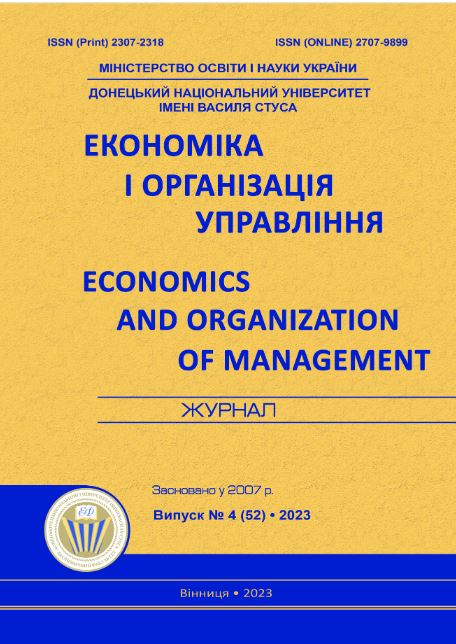Directions of transformation of business process efficiency management in the conditions of digitalization
DOI:
https://doi.org/10.31558/2307-2318.2023.4.10Keywords:
business processes; digitalization; management of the efficiency of business processes; Industry 4.0; transformations; information systems in management; competitive advantagesAbstract
The article is devoted to the definition of the main directions of transformations in the management of the efficiency of business processes in the conditions of digitalization. The conducted research made it possible to identify and classify seven main directions of transformations that affect the management of business processes in the conditions of digitalization, among which the authors single out: customer experience, which is constantly changing; strengthening the strategic link between BPM and digital innovation; acceleration of innovation, changes in processes and methods of work organization; the growing need for alignment between business and IT; changing the role of the company manager in the combination of BPM and digital technologies in management; BPM becomes more effective thanks to the modeling and monitoring of business processes; reducing resistance to BPM and digital innovation.
The authors note that the use of intelligent data analysis, machine learning and artificial intelligence can be aimed at improving the interaction with customers. While data mining refers to the discovery of patterns in large data sets using real-time customer data, machine learning refers to the scientific study of algorithms and models of applying information systems to perform tasks without human guidance, but under the condition of smart machine behavior. Artificial intelligence also uses big data to make decisions and make predictions.
The authors classify the determined directions of transformations of business process management, which take place under the influence of digitalization, into two groups - those that have a direct effect on increasing the efficiency of business processes, and those that have an indirect effect on the efficiency of business processes. The positive effect of the transformations of the second group depends on the effectiveness of strategic management in the company, the effectiveness of using the potential of digitalization of business process management.
References
Van Looy A., Poels G. A Practitioners’ Point of View on How Digital Innovation Will Shape the Future of Business Process Management: Towards a Research Agenda. In Proceedings of the 52nd Hawaii International Conference on System Sciences, Grand Wailea, HI, USA. 2019. Volume 6. PP. 6448–6457.
Barnes C., Blake H., Pinder D. Creating and Delivering Your Value Proposition: Managing Customer Experience for Profit. Kogan Page: London, 2009.
Bleier A., de Keyser A., Verleye K. Customer engagement through personalization and customization. In Customer Engagement Marketing; Macmillan, P., Ed. Springer International Publishing: Cham, Switzerland, 2018. PP. 75–94.
Steve B., Rich G., Eonju L., Joseph M., Brian N., Andreas S., Zac Sprackett S. Customer Interest Processing in a Customer Relationship Management (crm), 2020. Application. US Patent 20200118220A1.
Heckmann C.S., Maedche A. IT ambidexterity for business processes: The importance of balance. Bus. Process Manag, 2018. PP. 862–881.
Levin K. Frontiers in Group Dynamics: Concept, Method and Reality in Social Science, Social Equillbrla and Change. Human Relations. 1947. №1 (1). PP. 5-41.
Rosini C., Barbero S. Systemic design's guidelines to implement organizational change. DRS Biennial Conference Series. Bilbao, 2022.

